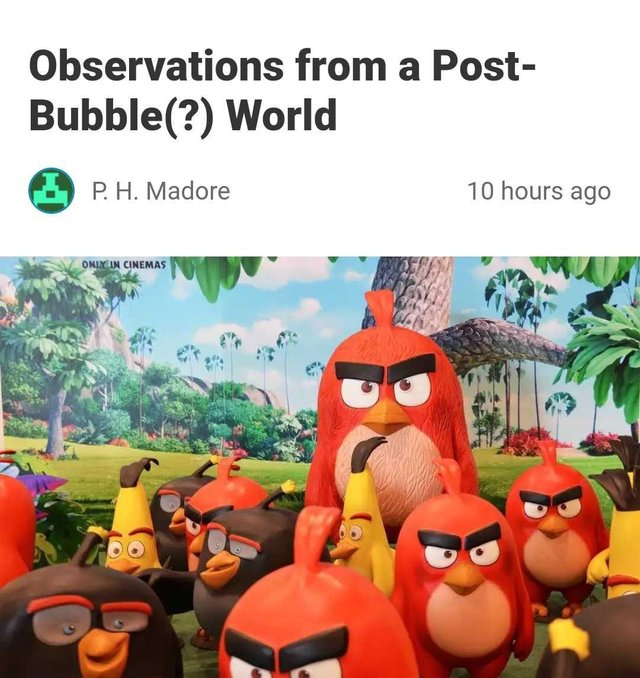
If you have any kids, you’re by now familiar with the phenomenon of the Angry Birds. The game series and subsequent branded clothing and the like have created something literally insane: a $1 billion IPO valuation for something called Angry Birds. We’re not making this up.
Rovio Entertainment, the Finnish maker of Angry Birds, is targeting an IPO that would give it a market value of €802 million ($956 million) to €896 million ($1.1 billion). […] Rovio said it would price shares between €10.25 ($12.20) and €11.50 ($12.30). […] Rovio has built an empire around its popular mobile game Angry Birds, including toys, clothes and an animated 3-D movie. […] The gaming app, which was released in 2009, allows players to sling virtual birds at enemy pigs to save their eggs.
Meanwhile, people are concerned that we’re in a bubble with cryptocurrencies and, more specifically, with initial coin offerings and the technologies coming out of them. Let’s be real: the two things are not the same. For better or worse, games and movies are proven ways to make money, while most of the technology we’re offered in the ICO space is speculative at best.
But, of the technologies that we’re offered, those that actually do succeed, well, some of the will re-shape society. And that’s what we’re betting on: the kind of money that is made then. But it’s clear that if we were in a bubble, it recently popped. The bloodshed may not even be over, there may be speculative pumps left before the whole market has some time to rebuild. All the same, it’s helpful to monitor what’s going on in the rest of the world to determine if we’re really overvaluing things.
Most firms in the ICO space differ from Rovio in two ways: they don’t have a working product or solid revenue to point at. As such, most of them aren’t trying to value themselves at nearly the same level. But if society can afford this amount to value a games company, then certainly we’re far from having too many fundamentally transformative companies come out of the cryptocurrency space.
We’re either a long way from the bubble or somehow in a world where bubble economics don’t truly apply. Every token brings with it a stagnated exit from the cryptocurrency market, thereby inflating the amount of value that is actually invested in the crypto economy. The amount of demand to liquidate it actually is less important when the activity around ICOs is viewed through this lense: even when people, or the network as a whole, loses a bit of money, it gains in new participants, who later are likely to re-add the lost value.